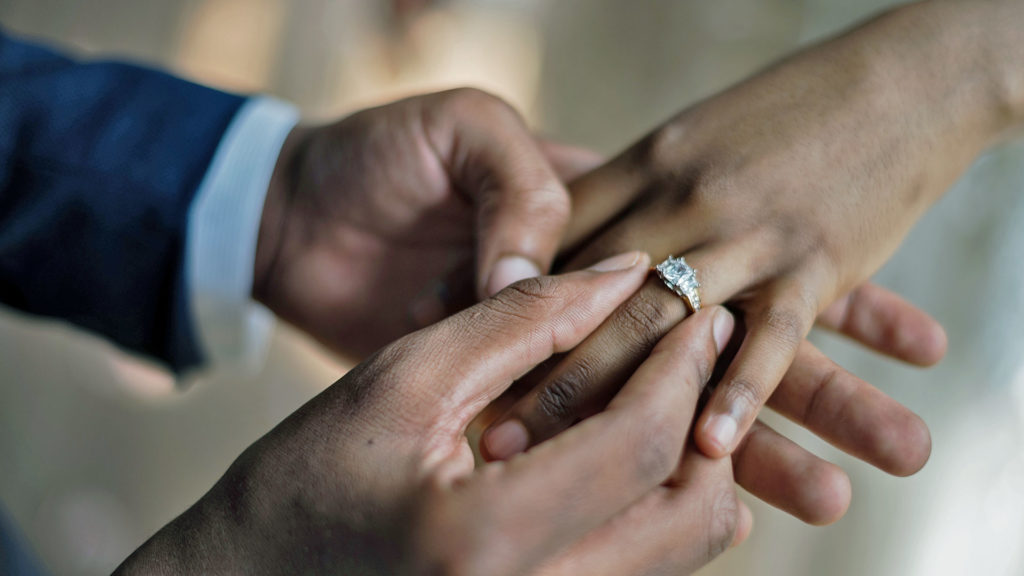Knowing which title you should use in preparation for your wedding can be tricky when you identify with feminine pronouns. Technically, you aren’t a Mrs. until the big day, but using Miss during your engagement may not feel right. Learn the difference between Miss, Ms., and Mrs., so you use the right one throughout your prenuptial process.
When To Use Miss
In society, we usually use “Miss” when talking to a girl or a woman that’s not married yet. We’ve used this title for centuries to refer to younger women, and most single women in their 30s and beyond view the title as a bit juvenile.
When To Use Ms.
On the other hand, we typically use Ms. when:
- We don’t know her marital status
- She is single and over the age of 30
- The woman is divorced
Interestingly, Ms. is an ambiguous title, so you can use it when referring to a woman if you don’t know her relationship status. In other words, it’s appropriate for married and unmarried women, even though we’d typically use Mrs. once she’s married.
When To Use Mrs.
Once you’ve tied the knot and signed the marriage papers, you’ll officially become a Mrs. We use this title when referring to a married woman. Feel free to use cute signs or letters with Mrs. at your reception since you’ll officially be a married woman!
Using Other Honorifics
If you don’t identify with the gender binary, you should use the pronouns you feel most comfortable with. Many nonbinary individuals use Mx. in place of gender-specific honorifics. On your big day, you should feel comfortable, and gender identity is a big part of who we are as individuals.
Likewise, you should use this honorific when sending out your invitations to any guests who don’t use Mr., Miss, Mrs., or Ms. When in doubt about what to use, reach out to that guest and ask them. This ensures you properly address their invitation to your wedding.
Tips for Writing Your Wedding Invitations
You’re not a Mrs. yet, so you should avoid using this unless you say “future Mrs.” followed by the last name you’ll use. For sending out save the dates and invitations, most recommend referring to yourself with Miss or Ms. since both refer to unwed women. The one you use is a matter of opinion and your preferences. Just like some women view Miss as juvenile, others could consider Ms. too matronly.
Addressing Your Guests
As you narrow your wedding guest list, you’ll need to know how to address everyone you invite. Using the appropriate honorific for your guests is important and shows respect for the people coming to your big day. If you don’t know someone’s relationship status, it’s best to refer to her as Ms. since this title is ambiguous, unlike Miss and Mrs. This way, you won’t accidentally offend any of your wedding guests.
When writing out your invitations to couples, you’ll also have to decide how to address both individuals. The most common ways of addressing this include the following:
- Mr. and Mrs. John Doe
- Mr. John Doe and Mrs. Jane Doe
- Mr. and Mrs. Doe
- The Doe family
The way of addressing that you choose is completely up to you, but the second option is the most common for invitations because it’s formal. However, you should refer to the individuals separately if both partners kept their original last names.
Bridal Tip
If one of your guests is a widow, you should still refer to her as Mrs. unless she said she prefers Ms. instead. Many wedding experts advise using Mrs. still out of respect for her lost partner. On the other hand, you’d typically use Ms. for a divorced woman.
A Closing Note
Understanding the difference between Miss, Ms., and Mrs. ensures you know how to refer to yourself and others as the big day approaches. Remember, while there are standards for when we use specific honorifics, what you use is your choice. Just make sure everyone knows which title you prefer they refer to you by to prevent anyone from feeling confused. Enjoy planning your special day!


